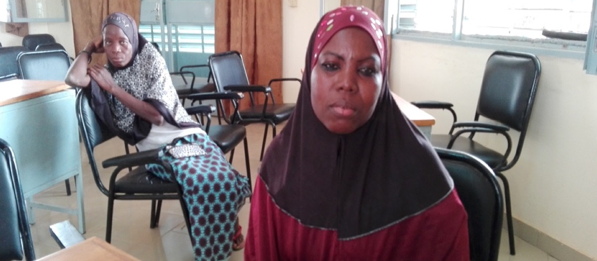This is the eighth post of Farming First’s #FillTheGap campaign to highlight the gender gap facing rural women working in agriculture.
For smallholder subsistence farmers, one of the greatest barriers to developing their business is a lack of available credit for what is often written off as too risky an investment. For female smallholders, the prejudices are greater still.
Yet bridging this risk-averse preconception can have a transformative effect, not only for the women it affects but for her family and community as well.
Fatimata Nadinga, a mother-of-one and a cowpea farmer from Dargo, Burkina Faso, was among those who had been typically blocked from the crucial credit that might enable her to diversify her farm and become more economically resilient.
But in November 2017, a USAID-funded project implemented by non-profit CNFA trained women in the “warrantage” credit mechanism. The system allows farmers to use their grain as collateral to obtain credit from a bank or micro-finance institution rather than selling their harvest all at once.
Under this system, farmers can access credit while also strategically selling their crops at the highest price.
In Fatimata’s case, she was able to register her three 100kg bags of cowpea with the Burkina Faso Credit Union Network (RCPB), a partner working with CNFA to facilitate the warrantage process. The RCPB then provided her with credit based on 80-90 per cent of her cowpeas’ market value.
When she stored her cowpea under warrantage, the market price was at 26,250 CFA francs (US$48) per 100kg bag. For her three bags of cowpea, Fatima received 72,000 CFA francs (US$132 total) from RCPB.
With this credit, Fatimata planned to buy two sheep, livestock feed and the necessary vaccinations for 71,000 CFA francs while she waited for the optimal market conditions to sell her cowpea.
And when the time was right, she should be able to sell her two fattened sheep for 160,000 CFA francs, allowing her to repay the credit, interest and storage, while still leaving her harvest of cowpea to sell.
In total, she could expect to make a profit on the loan she took out on her crops as well as the additional income provided by the sheep, allowing her to better support her family.
“As I understood how the warrantage system works, I realized I could leave my cowpea in the warehouse and continue my income-generating activities with the profit from the sale of my sheep,” said Fatimata.
“I’m ready to start the warrantage again this year. I understand the system and I intend to benefit from it; it is really a good thing for us women. As this year the rainfall has not been good, I hope that the price of cowpea will grow and it will allow us to do good business.”
For more stories of bridging the gender gap, visit Farming First’s Fill The Gap page or follow #FillTheGap on social media.



